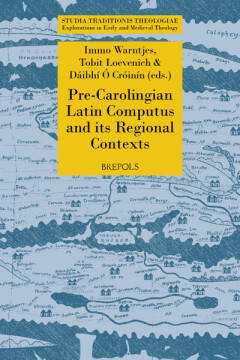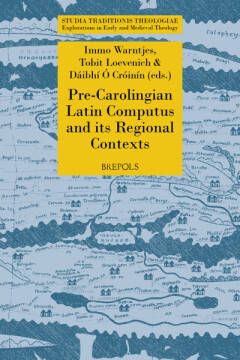
- Retrait en 2 heures
- Assortiment impressionnant
- Paiement sécurisé
- Toujours un magasin près de chez vous
- Retrait gratuit dans votre magasin Club
- 7.000.0000 titres dans notre catalogue
- Payer en toute sécurité
- Toujours un magasin près de chez vous
Pre-Carolingian Latin Computus and Its Regional Contexts
Texts, Tables, and Debates
Immo Warntjes
Livre broché | Anglais
74,20 €
+ 148 points
Description
The period between the Fall of Rome and the rise of the Carolingians saw a major shift in knowledge production. Learning became monopolised by a Christian intellectual elite in a rapidly developing monastic landscape. This transition and transformation was only fully achieved by the time of Charlemagne, whose reign saw a 'Carolingian Renaissance' that re-created links to Late Antiquity and its curriculum, the seven liberal arts. The centuries in between, from the fifth to the eighth, are generally considered a time of stagnation in terms of intellectual achievements, particularly in the quadruvial arts. From Boethius to Alcuin, not a single noteworthy text was produced in the Latin West in astronomy, geometry, arithmetic and music. This traditional view has been challenged in recent years by highlighting that the artes liberales may not provide the appropriate lens for this time-period, and that it neglects the plentiful anonymous literature. By the seventh century, a decidedly Christian curriculum had developed principally comprising exegesis, grammar, and computus as its three key pillars. Computus (with the calculation of Easter and therewith the mathematical modelling of the course of the sun and the moon at its core) developed out of the Easter controvery into a discipline of monastic learning in its own right. This volume seeks to highlight the vibrancy and regional characteristics of the study of computus and its underlying controversy about the correct calculation of Easter in this transition period from the mid-fifth to the mid-eighth centuries.
Spécifications
Parties prenantes
- Auteur(s) :
- Editeur:
Contenu
- Nombre de pages :
- 254
- Langue:
- Anglais
Caractéristiques
- EAN:
- 9782503605562
- Date de parution :
- 18-04-24
- Format:
- Livre broché
- Format numérique:
- Trade paperback (VS)
- Poids :
- 448 g

Seulement chez Librairie Club
+ 148 points sur votre carte client de Librairie Club
Les avis
Nous publions uniquement les avis qui respectent les conditions requises. Consultez nos conditions pour les avis.





